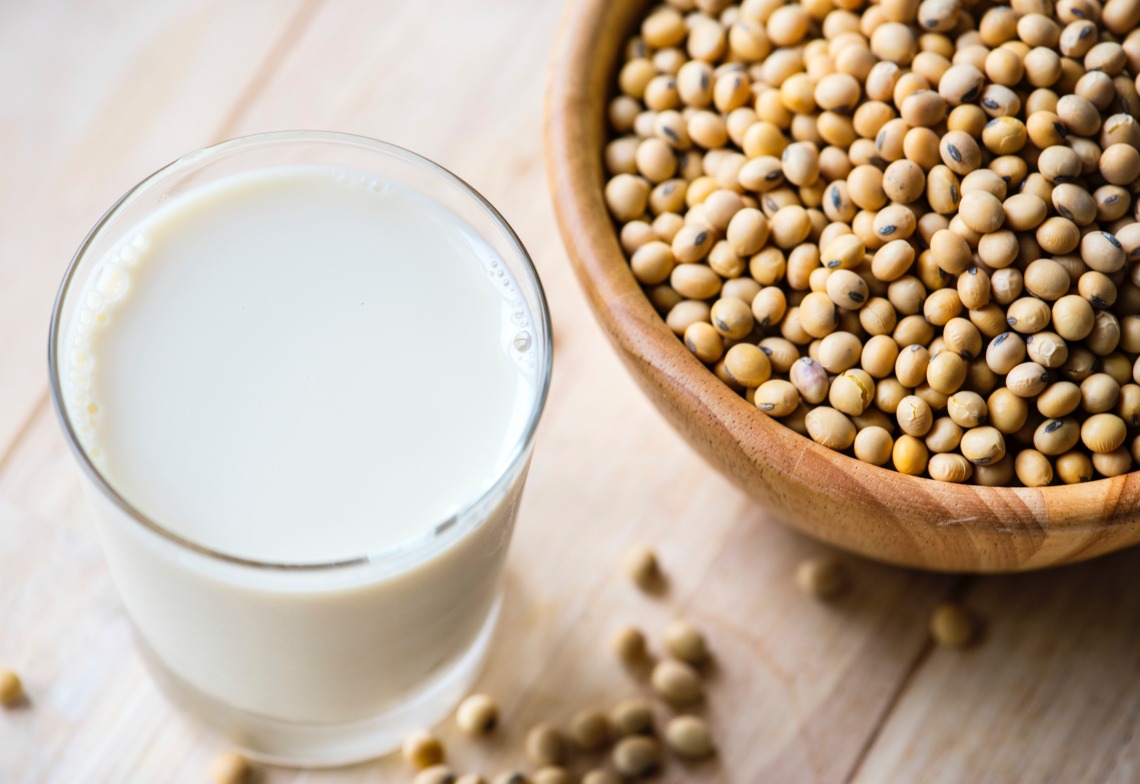3 Soy Myths Debunked

There are few foods as controversial as soybeans. These little green beans are famous for being a high-quality source of protein packed with vitamins, minerals, fiber, and healthy fatty acids. Tofu, tempeh, soy milk, and meat alternatives like soy burgers are all examples of soy foods. Research shows they may reduce the risk of coronary heart disease, osteoporosis, and some forms of cancer. But there is also media speculation and research suggesting potential health risks of soy, leading some to avoid it all together.
So why the controversy? Here’s the latest information on three common myths about soy:
Myth 1: Eating soy increases risk of breast cancer
The compounds in soybeans driving this myth are called isoflavones. Isoflavones are phytoestrogens: plant compounds that act like estrogen in some parts of the body. The concern is that breast cancer risk and/or growth increases when estrogen is present. Phytoestrogens are not, however, the same as the hormone estrogen. While isoflavones may act like estrogen, they also have antiestrogen properties that can block natural estrogens, stopping estrogen formation. Multiple studies have shown no association between soy and breast cancer, and some suggest it may protect against it.
Myth 2: Soy reduces testosterone levels and causes feminization in men
This myth originates from studies showing impaired ability to produce offspring in male rats who were given high doses of phytoestrogens. However, rodents metabolize soy isoflavones differently than we do and the results of the rat studies haven’t been duplicated in male humans. A review of several clinical studies concluded that isoflavone-rich soy does not affect free testosterone levels or estrogen levels in men.
Myth 3: Soy imitation meat is always more nutritious than real meat
Soybeans are super versatile, nutrient-packed, and are considered a complete protein (containing all the essential amino acids), making them an ideal meat alternative (think soy burgers, hot dogs, and soy “nuggets”). However, when transforming a bean into something that looks like meat, sodium, fat, and other preservatives are often added. Processed soy products also contain much lower amounts of those health-promoting isoflavones. It’s therefore best to stick to minimally processed soy foods such as edamame, soy nuts, tofu, and tempeh to get the most health benefits.
Bottom line? Soy is safe, and is likely beneficial for most. As with all foods, enjoy soy in moderation and stick to whole, minimally processed versions.
